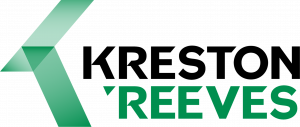Why did you choose a job in the tax profession?
I have always relished the kind of computations and formulas that all accountancy provides. My accountancy degree confirmed that I had made the right choice of career, and as part of my degree, I completed a number of tax modules. It was the detailed technical aspects of tax and learning that proved particularly appealing, as well as the interpretation of legislation.
What was the application process like – do you have any advice?
I was a few months away from graduating with a degree in accounting when I applied for a graduate role in the Swindon Tax Team at RSM Tenon, and at that point I knew that I wanted a career in tax. I understood the basics, so I was seeking a well-rounded tax education. The role I applied for was based on compliance, but RSM Tenon told me it would be varied and would give me experience in all areas of tax.
The application process involved submitting an application form and CV. I was then invited to an assessment day, with interviews, tests and presentations. A few days later I was offered the job.
The assessment day was quite intense, but it was also a positive experience. The HR team tried to make everyone feel more comfortable – although of course you can never entirely relax when you know that you are under constant review. On the day I knew I had to stand out, so I ensured that I was first to present, that I remained confident, and that I maintained a professional look. During the presentation, which was the most intimidating task, I told myself to stay strong and I managed to deliver a fluent presentation to several directors and HR staff.
In my feedback it was noted that I was successful because I was confident and keen. My advice is always to do or say something that sets you apart. It’s a competitive market, and so it’s up to you to show your future employer how great you are.
What are your main duties/roles?
I am pleased to say that after five years I have definitely had opportunities to work in a wide variety of tax disciplines, including compliance, international, corporate and inheritance tax. My main duties as a Tax Senior with RSM Tenon include:
- Preparation and completion of tax returns for clients, which include individuals, sole traders, partnerships and trusts.
- Work within international tax, including arrival and departure briefings for expat employees arriving and leaving the UK. I advise clients on how the UK tax system works and its implications for them.
- Completion of expenses and benefits forms for small companies and international employees on a modified payroll scheme.
- Managing different payroll schemes for international employees, such as modified payroll schemes and direct collection schemes. With the introduction of Real Time Information (RTI) we have been working on bringing these schemes in line with RTI.
What are the most stressful parts of the job?
Definitely January – the 31st is the tax return deadline. Pressure starts to build in October/November, as we try to get on top of the workload before the Christmas break. February and March can be quiet, but the bespoke tax consultancy work picks up and international tax work still continues after the UK tax deadline.
What skills are useful in the tax profession?
The most useful skill is time management and job prioritisation. You soon learn after working in tax that you can be juggling a number of jobs for a number of different people. You need to make sure you complete the jobs on time and within budgets.
Is it a 9-5 job?
You get out what you put in. I am driven to gain a wide variety of tax experience, and that means completing work for different senior managers at the same time. This is great, but I have found myself working late regularly to meet my deadlines. Around exam times I was able to push back and say ‘no’, to ensure I had my evenings to study.
What challenges have you come across and how did you overcome these?
The challenges are numerous, but as a top ten firm, RSM Tenon has an Academy that helps you throughout your career. They start with an introduction course to RSM Tenon and you work your way through different courses such as tax technical updates, improving your overall presentation skills and finally, once you qualify, they help you think about your career and what you can do to give it a ‘kick start’.
There is also a programme called Career Tracker, which helps employees who are actively looking to progress their careers within the company. It provides qualified employees with a mentor who gives advice on how to achieve career goals. The programme also holds special events, which train you on how to maximise your potential and utilise your skills to reach your next career goal.
Do you have any advice for anyone wanting to get into the industry?
If you are interested in a career in tax, you might start with a module at university, or you could look for work experience within an accountancy firm. We have had a number of work experience students, and hopefully we have given them a taste for tax and an idea of what they can expect from a career in this industry.
Over the last few years, I have learned real attention to detail, so you need to be sure that you have the skills and motivation needed for this. In tax, your calculations affect what people pay, so you have to get your figures right.




